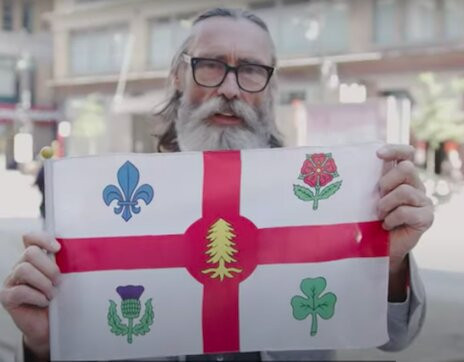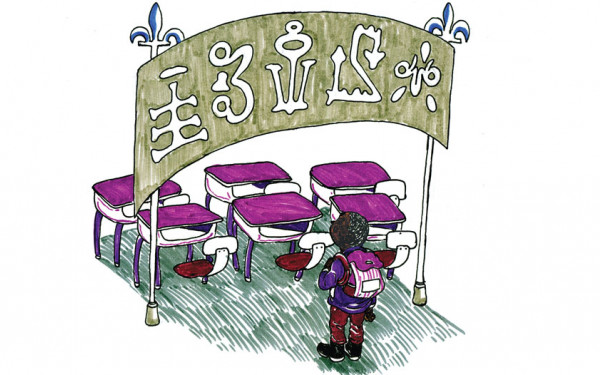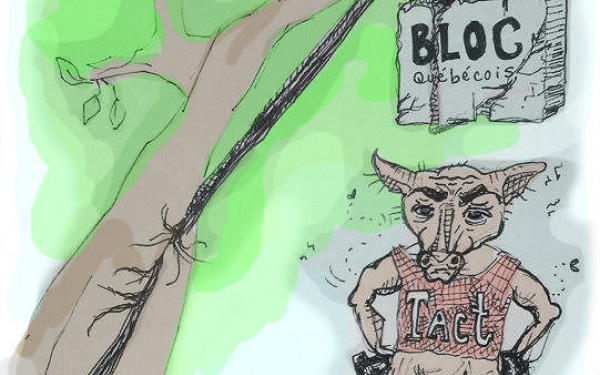What We Choose to Remember: A film on identity and Quebec’s Anglophone Community
Documentary premieres May 13 at the Hudson Film Festival
What We Choose to Remember explores the identity of people who identify as English speakers in Quebec. The documentary surveys English-speaking Quebecers who immigrated here or whose families immigrated here any time since 1760.
The documentary opens by asking Montrealers if they know the meaning of the flowers on the Montreal flag. Most did not. These flowers represent the Indigenous peoples, as well as French, English, Scottish, and Irish immigrants who founded the city. From there, the film splits its focus between different waves of immigration. Interviewees from each of the five waves are asked about their experiences living in Quebec as English speakers.
In 2018, the Secretariat for relations with English-speaking Quebecers reported in their annual budget that Quebec English-speaking artists felt unseen and misrepresented. It allocated $400,000 of funding to the English Language Arts Network (ELAN) to in-part produce this documentary. ELAN is an organization that assists English speaking artists in Quebec.
At the time, Guy Rex Rodgers—founder of ELAN and director of What We Choose to Remember—was ELAN’s executive director.
“Often for this kind of project, I would have simply hired a director, but because the story was so important to me and something that I had taken so seriously I wanted to do it myself,” said Rodgers.
Rodgers explained that he started thinking of this project 40 years ago. When he immigrated here from Australia, he was trying to make sense of Quebec’s unique language landscape.
Rodgers said it was important to centre the documentary on group interviews – a challenging task in the midst of a pandemic. He explained the goal was for interviewees to build on each other’s answers and create a dialogue amongst English-speaking Quebecers.
This format also aimed to shed light on experiences of being an English speaker in Quebec that are not often discussed. These experiences ranged from anglophones being excluded from the French Catholic school system to having their French language skills deemed unsuitable for living in Quebec.
“When it comes to being a Canadian, I’m a Montrealer first, a Canadian second, and a Quebecois—when they allow me to use the term—third,” explained Deborah Forde, one of the interviewees. She added that this documentary allowed her to question parts of her identity she normally would not.
Rodgers said these interviews allowed the participants to have deeper conversations, and opened a discussion on the experiences unique to the Quebec English-speaking community.
Rodgers and his team decided to structure the documentary around different waves of immigrants who came to Quebec.
Rodgers established the first wave as happening from 1760 to 1945 which mostly consisted of English and French, with the largest minorities being the Black community, the Chinese community and the Jewish community. Then there was the post-war wave from 1945 to 1970. Rodgers explained that this was when allophones started to truly outnumber anglophones. He chose 1970 as the end date because it is when the October Crisis happened.
The next wave was from 1970 to 1995. This period encompassed a dense political period in Quebec ranging from the end of the FLQ crisis to the second referendum. As for the next 25-year period, Rodgers thought it encompassed too many different realities, so it was split into 1995-2010 and 2010-now.
For each wave, Rodgers said he selected communities that had immigrated in significant numbers. The documentary makers also aimed to have a diversity of ages within these groups.
“One of the criteria was that we didn’t want anybody there who hates Quebec. There was no point in that. We wanted this to be a story about people who have either deliberately chosen to come to Quebec or stay in Quebec. For better or for worse, this is where they want to make their home,” explained Rodgers.
Though the documentary began production before Bill 96 was introduced, Rodgers explained he made a point to end on a few comments about the language bill.
“My working hypothesis is that it’s no longer Catholic/Protestant, English/French. It’s really between people who value multiple languages – bilingual or multilingual – or people who want to restrict themselves to a single language in French. Those are the people driving Bill 96,” said Rodgers.
For interviewees such as Forde, participating in this documentary was an illuminating process.
“It was my experience of watching the final product and seeing myself amongst all these people and all these stories and really starting to put some historical context to it,” said Forde. She explained that it was strange to see herself amongst so many people who had similar experiences to hers; especially those she was not used to discussing.
Rodgers said he values the communal experience that went into making this film and hopes people will view the film in groups. He explained such viewings could spark discussions that go beyond the ones he captured.
“I have gotten comfortable with who I think I am as a Quebecer, and this [film] made me say wait a minute, let’s look at this again,” said Forde.
What We Choose to Remember will be streaming for free online. More information can be found on ELAN’s Website.







_600_375_90_s_c1.jpg)